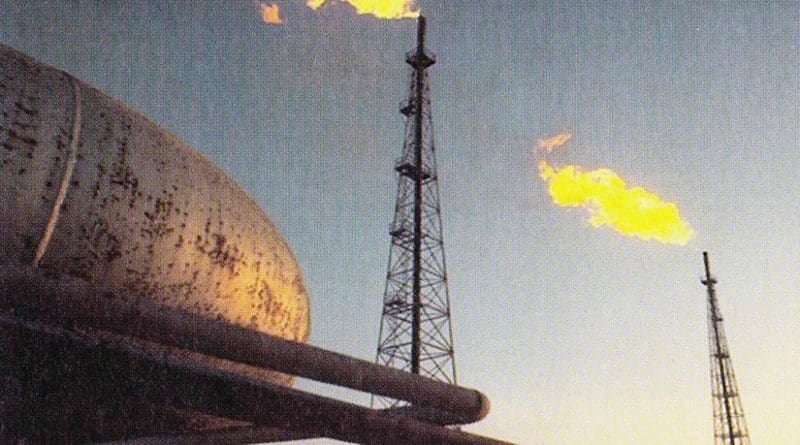Iran Losing Historic Chance To Capture Gas Market Share – OpEd
By Payman Yazdani
The long-awaited gas pipeline project of Turkmenistan, Afghanistan, Pakistan and India (TAPI) connecting the energy-rich Central Asian nation with the South Asian countries was inaugurated couple of days ago.
Considering the facts on the ground including political differences of the involved countries in the project and also insecurity and instability in the region many experts believe the successful realization of the project will depend on the ability of the project participants to maneuver through among others geopolitical, financial and technical challenges.
To shed more light on the issue we discussed the issue with the resident scholar on energy policy at the Middle East Institute, Rauf Mammadov.
Considering the differences between India and Pakistan, instability and insecurity in Afghanistan and Pakistan, how successful do you see the future of this project?
Although it is certainly a milestone for the two-decade-old project, TAPI is still facing an uphill battle. Successful realization of the project will depend on the ability of the project participants to maneuver through among others geopolitical, financial and technical challenges. It is still unclear how the project will be funded although external funding seems inevitable for the $10 billion (the figure ranges from $8 to $12 billion) project. The vague statement by the Turkmenistan government regarding the loan provided by Saudi Fund of Development failed to bring clarity to the loan terms and the actual amount of the loan. Moreover, the consortium has yet to bring clarity to the technical questions such as the transit fees and sales-and-purchase agreements for the gas.
The integrity of the Afghanistan stretch of the pipeline will depend on security guarantees provided by a non-state actor such as Taliban and tribe leaders. Fragile nature of the relations between Afghanistan and Pakistan, as well as, outstanding issues in relations between Pakistan and India will test the solidarity of the project participants to successfully complete and operate the pipeline.
How can this project affect the economy and security of the region particularly Afghanistan?
Turkmenistan has been recently facing acute economic problems. Only one of its three gas export pipelines is operating as Russia ceased the imports in 2016 and there is an ongoing arbitration between Turkmenistan and Iran regarding the payments. Turkmenistan needs to diversify its export outlets and energy-hungry India and Pakistan are evidently a lucrative market for the energy-rich Central Asian state. The leadership of India and Pakistan have repeatedly vowed to increase the share of natural gas in their energy mix and also to diversify the import sources. As both India and Pakistan currently rely on domestic production and LNG imports, relatively cheaper pipeline gas from Turkmenistan will only serve to alleviate their gas import efforts. Moreover, if completed the pipeline will be delivering natural gas to the landlocked regions of Pakistan and India rather than coastal parts of these countries.
Why Saudi Arabia supports the project?
The nature of Saudi Arabian support to the project is still unknown. It is also unclear in what capacity Saudi Arabian government or the Kingdom entities will be involved in the project. 700-million USD loan provided by the Islamic Development Bank was used for the completion of Turkmenistan part of the pipeline whereas there have been scant information regarding the loan provided by the Saudi Fund of Development for the rest of the pipeline.
What are the challenges and opportunities of the project for Iran?
There is a glut in the natural gas market at the moment, and the abundance in the market is expected to last for another 5 to 8 years. Therefore, major gas exporters such as Russia, Qatar and Australia are in fierce competition to capture their market shares. Qatar is currently the largest LNG exporter both to Pakistan and India. Although geographically located closer to these markets, Iran lacks the necessary infrastructure to transport its gas to these favorable markets. Successful realization of the TAPI pipeline will also have a negative impact on the realization of the long-disputed Iran-Pakistan pipeline.
How do you evaluate Iran’s energy diplomacy?
Iran is losing the historic chance to capture the market share in increasingly competitive natural gas, especially LNG, market. The dearth of its pipeline and LNG infrastructure constrains Iran’s efforts to become a significant player in the market. New large gas fields are being discovered in south shores of Europe, which are becoming substantial competitors for Iranian gas in European and Asian markets.
First published in our partner Mehr News Agency and Modern Diplomacy

